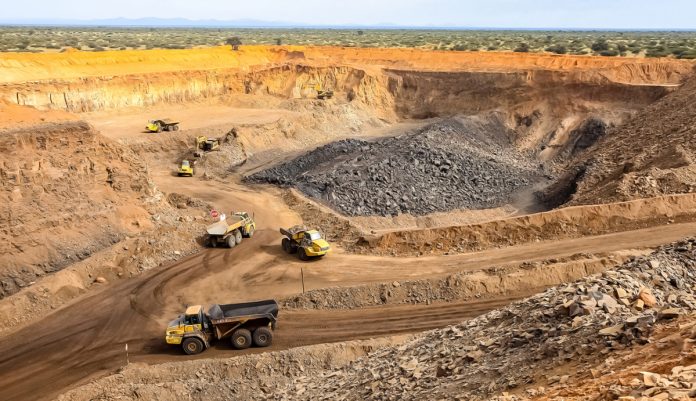“Freedom is Not for Sale.” General Zia-ul-Haq, the former president of Pakistan, is renowned for saying these poignant remarks, which still reverberate throughout the halls of power and in the hearts of Pakistanis. They act as an unmistakable reminder of Pakistan’s steadfast dedication to its sovereignty and security. Swirling rumors about the protection of the country’s critical assets and alleged transactions involving the Reko Diq mines among the biggest undeveloped copper and gold reserves in the world have given these statements newfound meaning today.
It is imperative that we handle these issues from a balanced stance, keeping in mind the governments’ long-standing and continuing commitment to the security and prosperity of the country. Since gaining its independence, Pakistan has traveled a path characterized by an unwavering dedication to upholding its territorial integrity and national sovereignty. From General Zia-ul-Haq to the current leadership, Pakistan’s leaders have steadfastly defended the maxim that the country’s security and freedom are unassailable.
Pakistan’s strategic resources were significantly strengthened during General Zia-ul-Haq’s leadership, especially in the defense and security spheres. The fundamental tenet of his administration’s policy was the interdependence between economic independence and security sovereignty. The way that succeeding governments have dealt with internal pressures and external threats has been influenced by this heritage.
The way the government has managed its strategic assets, including as nuclear capabilities and key places like the Reko Diq mines, CPEC, etc., shows how this attitude has persisted. These assets are more than just resources; they are symbols of sovereignty and pride in the country. The preservation and careful use of these resources show a distinct continuity between the past and the present, demonstrating that Pakistan makes strategic choices with long-term national security in mind.
Pakistan’s strategic assets, including its nuclear arsenal, critical infrastructure, and mineral resources, are fundamental to its national security and economic stability. These assets, vital for maintaining sovereignty and defense capabilities, are crucial in balancing regional power dynamics, particularly with India. The investment in nuclear capabilities, also used for peaceful purposes in various sectors, underscores a commitment to deterrence and peace. The development of nuclear weapons, initiated in the 1970s after the separation from East Pakistan, was a response to security concerns and regional nuclear advancements. Managed by the Strategic Plans Division with stringent safety protocols, Pakistan’s nuclear arsenal supports strategic stability in South Asia by deterring conflicts and enhancing negotiation capabilities with other nations.
Recent claims that Pakistan’s security and integrity are being compromised are totally false, and such rumors should be addressed and refuted decisively. Pakistan’s government and military leadership have continuously prioritized national asset security. Any notion that these assets are at risk under the present administration is false and contradicts established processes and the government’s track record.
Pakistan’s leaders and decision-makers recognize the significance and responsibility of managing national assets. High-level government officials have consistently emphasized that safeguarding Pakistan’s strategic assets is a top priority, and they remain committed to this pledge. In discussing national assets, including Reko Diq, it’s essential to understand the importance of Reko Diq.
Reko Diq: A treasure trove of resources
Reko Diq, located in the Chagai district of Balochistan, Pakistan, is one of the world’s largest untapped copper and gold mines. It spans roughly 13,000 square kilometers with deposits estimated at 5.9 billion tonnes of ore, which includes 0.41% copper and significant gold quantities. Economic projections suggest the mine could produce over 200,000 tons of copper and 250,000 ounces of gold annually, potentially generating billions of dollars over its 56-year lifespan.
Recent rumors about the potential sale of a 25% stake in Reko Diq have sparked concerns. However, the Pakistani government remains committed to preserving national assets, emphasizing that “Our Freedom is Not for Sale.” The notion of selling a significant part of Reko Diq is dismissed as misrepresenting government policy and intentions. Any decisions regarding such strategic assets would involve thorough transparency and focus on national interests, ensuring Pakistan’s sovereignty and economic future are not compromised.
The approach to managing Reko Diq and similar assets is focused on sustainable development and maximizing national benefit, involving rigorous assessment processes and public consultation. The government aims to attract international expertise and investment on favorable terms, ensuring control and majority benefits remain with Pakistan. This strategy not only refutes baseless rumors but also reinforces the commitment to safeguarding Pakistan’s sovereign assets for economic independence.







